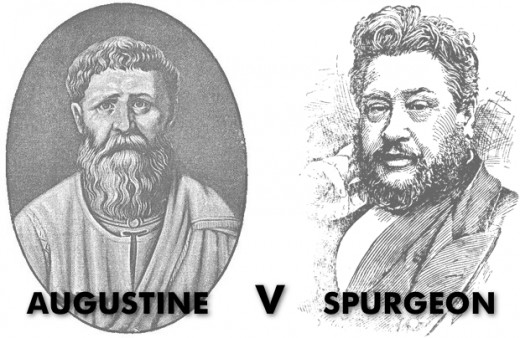If you haven’t been following along on the interwebs, a hornets nest has been kicked and then ignited with the release of three Zondervan e-books about women and preaching, and whether or not they should do it.
I’ve read one of these, Hearing Her Voice , by John Dickson, the following review should come with the same caveats I included when I reviewed Promoting the Gospel: the best kept secret of Christian mission – I think John Dickson is excellent, I love his published body of work, and have found him helpful at just about every step of the way on my journey from Christian kid to theological student.
, by John Dickson, the following review should come with the same caveats I included when I reviewed Promoting the Gospel: the best kept secret of Christian mission – I think John Dickson is excellent, I love his published body of work, and have found him helpful at just about every step of the way on my journey from Christian kid to theological student.
In this book we get more of Dickson’s very solid hermeneutical model applied to a pretty tricky question, and particularly applied to a verse that creates quite a few difficulties for the modern church. Seriously, he is, I think, the model of what being a careful interpreter of Scripture looks like, there’s a great para in the book that outlines his approach to using history as a tool for exegesis, and I commend it to you.
I was going to include quotes from the book – but this post is already almost 6,000 words long.
The question at the heart of this book – well, there are two questions, I think – and perhaps three – is what is “teaching?” Is preaching teaching? And if not, can women preach in church?
What’s not up for grabs for Dickson is the real strength of his work – he’s big on the authority of Scripture, big on consistently reading and exegeting it with the original readers and meaning in mind, and big on the principle that while male and female are equal in God’s sight, we are different.
I feel like I should throw in a few disclaimers at the start so you know where I’m coming from…
- I’m aware of the dangers of being a “privileged” and unoppressed class speaking out on this issue – a white, anglo-saxon, male, protestant voice in this debate needs to be pretty mindful of his cultural background and relative freedom to make proclamations that appear to come at a cost to others. (UPDATE: If you’re reading this post in the present day, post 2014, I’m also a guy who occupies a pulpit — even more ‘privilege’ to account for in this conversation).
- I love the concept of a priesthood of all believers – it goes without saying that this includes men and women – I think it’s biblical, I think we’re all called to be on mission together, and equipped by God to serve as part of the body of believers as we serve and love one another and try to reach people together.
- I think there are lots of women who are gifted preachers, teachers, and evangelists. I don’t see any gender specific traits that make being able to show someone else that Jesus is the Christ a particularly male act. This isn’t an “innate” issue, or a “masculinity” issue, men are not innately more competent in this area than women.
- I’m also a complementarian – I think our different genders are a good and necessary part of what it means to be human. I think we’re different but equal.
- I agree that there are lots of roles open to women that we’ve essentially closed because we’re scared of transgressing in this area – including prophecy, exhortation, partnering as “gospel workers,” etc.
- I think the gender stuff at the fall is pretty interesting, and is certainly something Paul has in mind in this verse. While this is pretty absent in Dickson’s book, it is something Mike Bird, who wrote a second book in the series, spends some time considering – but I haven’t read that yet.
- I’m wary about tossing out 2,000 years of church tradition, particularly the interpretive traditions from people who took the Bible seriously – though I’m also aware that all interpreters are fallible, and texts, and interpretations of those texts are the product of different cultures. I’m interested in a tendency, beyond Dickson’s book, to pit current movements of the Spirit through female preachers against historic movements, through tradition. I’m also pretty sure the Spirit of God is able to speak, and point to Jesus, through all sorts of wrong things we might, as humans, adopt. Our fallibility has never been an obstacle to the Spirit moving people to faith.
- I’ll also presuppose that how we do church – including who preaches – is part of our ethos, so that the decision about who preaches is, in part, a decision we make about our presentation of the gospel.
What is a sermon? Teaching? Exhortation? Preaching?
I have some reservations about how Dickson approaches the Greek language (and how others do too) – but this is probably because they are experts at Greek and I am not. I think word studies have some merit, but I think assume too much about the deliberation that goes into the use of particular words, rather than paying heed to the vibe of a paragraph, or whole letter. I think words often have a broad semantic range that overlaps with other words, and you kind of use those ranges together to create new concepts – Dickson thinks this happens with “teaching” and “authority” in the verse in question… So I don’t really like arguments based on word studies – and most of my response won’t really engage with the question of whether or not “teaching” or in the Greek, didaskein, is a technical word for a particular act, or a general word for the passing on of knowledge – this is where the debate is being fought out on the interwebs by Lionel Windsor, and Dickson himself (in a great model of how you can disagree with people without calling their character into question…
Like I say – I’m not an expert on Greek, and don’t pretend to be, and I’m fairly sure that words can also be used technically to mean very narrow things – but I do think literary context guides interpretation… and I think one of the concerns of Paul’s letter to Timothy is to help Timothy, and the church, think rightly about questions of pastoral leadership – including the establishment of a role that seems to be for men and includes carrying the responsibility of preaching and teaching, within the church.
I don’t think Dickson necessarily disagrees with this approach to language – though his treatment of “teaching” here is very similar to his treatment of “evangelism” in Promoting the Gospel. He allows for general use of words, while suggesting we need to pay heed to the technical meanings that may have been in operation in the first century.
He spends significant time making the case that “teaching” isn’t directly transferrable to what we do in the pulpit of a modern church each Sunday – and his argument seems to have some merit. I don’t think preaching is the teaching, in the technical sense, that Dickson identifies. So I’m almost happy to cede his whole argument, on one level – if the Sunday sermon is exhortation, as he suggests, or prophecy as the Puritans suggest, and not teaching (as Lionel Windsor suggests it is) – then I think he’s right – women should be able to exhort, prophecy, and do all the things that Paul specifically or implicitly allows, and even all the things he doesn’t forbid.
Anyway – here’s the passage in question, with a bit of context. From 1 Timothy 2…
5 For there is one God, and there is one mediator between God and men, the man Christ Jesus, 6 who gave himself as a ransom for all, which is the testimony given at the proper time. 7 For this I was appointed a preacher and an apostle (I am telling the truth, I am not lying), a teacher of the Gentiles in faith and truth.
8 I desire then that in every place the men should pray, lifting holy hands without anger or quarreling; 9 likewise also that women should adorn themselves in respectable apparel, with modesty and self-control, not with braided hair and gold or pearls or costly attire, 10 but with what is proper for women who profess godliness—with good works. 11 Let a woman learn quietly with all submissiveness. 12 I do not permit a woman to teach or to exercise authority over a man; rather, she is to remain quiet. 13 For Adam was formed first, then Eve; 14 and Adam was not deceived, but the woman was deceived and became a transgressor. 15 Yet she will be saved through childbearing—if they continue in faith and love and holiness, with self-control.
In 1 Timothy 3, when he’s establishing the qualifications of a deacon, and an overseer he gives a set of ethos heavy principles, like being “above reproach” – which presumably has something to do with not undermining his leadership of others, and “be well thought of by outsiders, so that he may not fall into disgrace, into a snare of the devil.” It is assumed in these verses that the person in question is a man – building off his argument in chapter 2.
In 1 Timothy 5 it appears he assumes these elders will be the people doing the “preaching and teaching”…
17 Let the elders who rule well be considered worthy of double honor, especially those who labor in preaching and teaching. 18 For the Scripture says, “You shall not muzzle an ox when it treads out the grain,” and, “The laborer deserves his wages.”
Then, in 2 Timothy 4, he kind of spells out what Timothy is called to do, under the umbrella of “preaching”…
4 I charge you in the presence of God and of Christ Jesus, who is to judge the living and the dead, and by his appearing and his kingdom: 2 preach the word; be ready in season and out of season; reprove, rebuke, and exhort, with complete patience and teaching. 3 For the time is coming when people will not endure sound teaching, but having itching ears they will accumulate for themselves teachers to suit their own passions, 4 and will turn away from listening to the truth and wander off into myths. 5 As for you, always be sober-minded, endure suffering, do the work of an evangelist, fulfill your ministry.
Ultimately, I’m not convinced by the way Dickson groups “teaching” and “authority” into one command, rather than two separate but related commands based on the same Old Testament/created order principle… and I think there’s another reason, an ethos reason, when it comes to how we persuade people about the message of the gospel that means we should think carefully about how we use, or emphasise, gender and authority in church gatherings… which I’ll get to below. Somewhere. I think what is done from the pulpit is an act of authority – and listening is an act of submission.
Where I think Windsor is right to go (but slightly wrong in where he lands – I think), and where I think Dickson is wrong – is on what the sermon actually is. In sum, Windsor thinks it’s teaching, and Dickson sells teaching short, Dickson thinks the sermon is exhortation, or something analogous to that – and thus thinks women can give sermons.
What Preaching is not…
I’d argue, along with Dickson, that preaching is not teaching, we’ve hastily drawn an analogous line from the Bible’s use of teaching to our modern equivalent, and that’s come at a cost.
- Preaching is not simply teaching – though it may involve the transmission of information from someone with knowledge to someone without.
- Preaching is not strictly exhortation though it may encourage.
- Preaching is not simply prophecy, though it may speak God’s word to people at a particular time… though in a sense a good sermon is all of these things.
This is one of the areas I think Dickson’s argument breaks down – you don’t have to look much past Paul to find someone who exercises more than one of the “offices” of word ministry that Dickson seems to suggest are in operation… Paul also suggests all of these things are part of Timothy’s job as a preacher (2 Tim 4).
It’s quite possible that there’ll be an overlap of different styles of speaking in any particular speech, much as there was in just about any form of first century oratory. Where Cicero, in Brutus, bags out some orators for being too specialised in one area, because the idea was that public speakers could adopt a wide range of styles, from the boring didactic history lecture, to the witty declamation of an opponent on the election trail.
What a sermon (preaching) is…
Preaching is preaching. It has a New Testament equivalent – and an Old Testament equivalent. It has a Greek word – kerusso – which had a pre-existing technical meaning, and a meaning that developed through Christian usage, and it appears to be something like being a herald and proclaiming good news, with authority.
I’d argue that if one:
- stands in the tradition of the reformers (and I’ll try to demonstrate below in the “read more” section – the New Testament), and the Westminster Confession,
- is prepared to think about preaching as an act of persuasive declaration of the gospel, using whatever persuasive resources are at your disposal to convince people that Jesus is the Christ – including logos, pathos, and ethos,
- and is convinced that a Christ-centred Biblical Theology is the best way to approach, interpret, and truly explain any passage of the Bible – such that all expository sermons are a declaration of how an Old Testament passage is fulfilled in the Christ, Jesus, or how a passage in the New Testament relates to life in his world, under his Lordship,
then our sermons are not “teaching” in the sense identified by Dickson – but “preaching”… in the sense that the word is used throughout the New Testament.
Our sermons should point people to Jesus and the kingdom of God, attempt to persuade people to accept the message, and declare that, Jesus is Lord – This essentially does nothing for the gender question but move the goalposts, so the question is not “can women teach?” but “can women preach?” – so Dickson’s insights, while useful, are potentially irrelevant to the question.
I would say that I think preaching is an act of authority – but the ultimate authority rests in the same person it rests in when Jesus is challenged about the authority behind his preaching – God and his Christ. When we preach faithfully we are simply pointing to the authority of Jesus. The way authority is exercised over the church is ultimately in the preaching of the word (and the faithful passing on of the apostolic traditions) as they relate to Jesus, not the appointment of humans who have particular gifts in particular areas. We judge a preacher’s authority on their adherence to the divine logos, Christ-made-flesh and Christ-crucified — the message of the Bible, not on their particular ability as a speaker. And I want to make the case below that we should ultimately profoundly be assessing a preacher on their ethos — their willingness to have the truth of this logos shape who they are and how they preach. I want to make the case that this isn’t a new way of thinking about what preaching is – first from the Reformers, and then, after a little ethos excursus from the New Testament (though the order should be reversed – the NT stuff is pretty long).
Preaching in the Reformed world
Both Luther and Calvin (Institutes, 4.1.5) put a pretty high value on preaching , if preaching involved the gospel – so much that preaching was more important than the sacraments in terms of constituting Christ’s presence in the gathering of the body – this was a big deal in a time where people were killed over what they thought happened at communion.
Calvin says:
“We see that God, who might perfect his people in a moment, chooses not to bring them to manhood in any other way than by the education of the Church. We see the mode of doing it expressed; the preaching of celestial doctrine is committed to pastors. We see that all without exception are brought into the same order, that they may with meek and docile spirit allow themselves to be governed by teachers appointed for this purpose… Hence it follows, that all who reject the spiritual food of the soul divinely offered to them by the hands of the Church, deserve to perish of hunger and famine. God inspires us with faith, but it is by the instrumentality of his gospel, as Paul reminds us, “Faith cometh by hearing” (Rom. 10:17). God reserves to himself the power of maintaining it, but it is by the preaching of the gospel, as Paul also declares, that he brings it forth and unfolds it.”
Both (Luther Large Catechism (PDF, p 72), Calvin Institutes 4.1.1, 4) saw the church as the “mother” of believers – responsible, ordinarily and under God, for giving birth to new believers and nurturing the faith of existing believers – and it did this, for both groups, in the same way – by preaching the gospel of Jesus. Not legalism. Not morals. Not ethics. Not just words of encouragement. But the gospel.
The gospel will have necessary implications for our morality and ethics – and it will necessarily be encouraging as we consider that the creator of the universe sent his son to earth to buy us, for a relationship, to make us his children. But our sermons that do all these things do these things because they first declare the truths of the gospel, and these things are part of the persuasive case the gospel makes for those who hear it.
The preaching of the gospel is one of the “marks of the church” for Reformed people.
The Westminster Confession of Faith essentially follows both Calvin and Luther on this point – it says the church is responsible for the “gathering and perfecting of saints” (WCF VII, XXV), and that the preaching of the word is one of the two marks of the church (along with the administration of the sacraments).
“And particular Churches, which are members thereof [the universal, visible, church], are more or less pure, according as the doctrine of the gospel is taught and embraced, ordinances administered, and public worship performed more or less purely in them.”
In XV the Confession says ministers are to preach: “Repentance unto life is an evangelical grace, the doctrine whereof is to be preached by every minister of the gospel, as well as that of faith in Christ,” and in XXI it says faithful preaching is part of worship. This preaching is conducted by these “ministers of the gospel”…
I like this quote from Calvin that Justin Taylor shared last week:
“This is what we should in short seek in the whole of Scripture: truly to know Jesus Christ, and the infinite riches that are comprised in him and are offered to us by him from God the Father. If one were to sift thoroughly the Law and the Prophets, he would not find a single word which would not draw and bring us to him. . . . Therefore, rightly does Saint Paul say in another passage that he would know nothing except Jesus Christ, and him crucified.”
Biblical, expository, sermons will point people to Jesus Christ in a way that declares his kingdom has come at the cross. It is preaching, not teaching.
An argument from “authority” – an ethos consideration
I think a case can be made that Paul’s prohibition on women exercising authority in the 1 Timothy 2 passage refers to what is going on in the gathering, and works a bit with the similar prohibition in 1 Corinthians, to establish a principle, rooted in creation and the fall, for what happens when the church meets and the gospel is preached… as an authoritative act.
But even if that case is weak – I wonder if there’s an ethos driven, cross-shaped, argument for women letting men preach, if sermons are preaching, and preaching is an act of persuasion where both pathos and ethos are as relevant as what we say… even if they are more gifted than their male counterparts, which is surely often the case.
A willingness to submit is part of the testimony of the gospel of the cross – as is a willingness to sacrificially not use our gifts for the sake of others… I’d argue Paul is essentially doing this in Corinth when he avoids using his full rhetorical prowess, that he demonstrates in Acts, in order to “know nothing but Christ and him crucified” as he teaches them, knowing what he does about their culture and context – and the sinful desires they have to place value in their abilities or flashy man made idols. I reckon its possible that gender equality is a bit of an idol in our culture – I’m not arguing that it’s a bad thing, idols are good things turned into ultimate things… but I wonder if a refusal to give in to cultural pressure on the gender front, voluntarily, might be a hugely important part of our testimony.
This is where a little bit of trepidation kicks in on my part – because I recognise that I’m a guy telling gifted women they can’t do what they’re gifted to do.
But, I think it’s possible that If we believe that:
- genders are different, but that people are equal in value,
- that the gospel does away with inequalities that people might establish on the basis of differences (Gal 3:28),
- that submission isn’t a statement of inequality, this is where some smart egalitarians like Miroslav Volf depart, but it must be true because if we believe that the Trinity is made up of three parties who are equally God, we need to be able to say that Jesus can submit to the father without calling this equality into question (in academic terms this is a question of whether you can have functional subordination alongside ontological equality, I think the answer has to be yes, if the submission is voluntary, an act of love, offered without coercion),
then we should be able to sacrificially let men do the preaching… even if there are women out there who are better equipped to do the job… because this is part of our testimony, and our act of testifying – to the sacrifice of Jesus, for his church – just as it is in marriage (Ephesians 5).
The act of preaching is an act of authority – but this authority isn’t establishing an inequality – and if it does create such an inequality, then questions have to be asked about whether or not the guy is doing his job – just like in a marriage. Because a cruciform preacher who humbly uses the gifts God has given to build up the church and point people to Jesus through the persuasive preaching of the gospel won’t, if logos, pathos, and ethos stack up, be in a position to create any inequality except the inequality created by considering everybody else better than yourself…
Our value to God isn’t caught up in our ability to serve him – with the gifts that he has given us, nor is our testimony – I would argue our testimony is caught up in our ability to live cross-shaped lives where we imitate Jesus, who despite having all authority and abilities in his grasp, and being equipped to do otherwise gave himself up for us, as an example, here’s Philippians 2:
2 So if there is any encouragement in Christ, any comfort from love, anyparticipation in the Spirit, any affection and sympathy, 2 complete my joy by being of the same mind, having the same love, being in full accord and of one mind. 3 Do nothing from selfish ambition or conceit, but in humility count others more significant than yourselves. 4 Let each of you look not only to his own interests, but also to the interests of others. 5 Have this mind among yourselves, which is yours in Christ Jesus, 6 who, though he was in the form of God, did not count equality with God a thing to be grasped, 7 but emptied himself, by taking the form of a servant, being born in the likeness of men.8 And being found in human form, he humbled himself by becoming obedient to the point of death, even death on a cross. 9 Therefore God has highly exalted him and bestowed on him the name that is above every name, 10 so that at the name of Jesus every knee should bow, in heaven and on earth and under the earth, 11 and every tongue confess that Jesus Christ is Lord, to the glory of God the Father.
Perhaps the way we testify to our unity, our like mindedness, and avoid promoting our gifts, interests, and selves, is to be prepared to not do things we could do, as part of our testimony to Jesus, and to the creator who sent him, and made men and women different.
Communicating why we’re doing this, and valuing, affirming, and giving avenues for gifted women to be effective members of the body and servants of the mission of God is obviously pretty tricky – and one of the great strengths of Dickson’s work is that it’s motivated by exactly this concern.
(more…)















